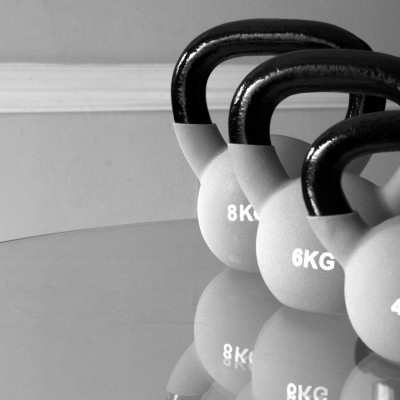Have you ever wondered why it’s so hard to resist temptation when you’re on a diet?
Have you noticed how cravings tend to hit around the same time of the day (particularly evenings)? And that, as the day progresses, they are harder to deal with?
What about going on a diet, and not allowing yourself certain things? Have you ever done that? I have. Did you notice the more you deny yourself something, the more you actually want it?
And now here’s the kicker: Have you ever wondered why that is?
Knowing the clever people who read my stuff, I bet you have, and now you’re about to find out!
I recently finished two books on a topic which has nothing to do with nutrition. Both of these books were on the topic of behavioral economics (you can find their names and the author at the end in the footnote) so naturally I was a bit shocked when I discovered two concepts that are extremely relevant to nutrition; two concepts that I think we would all be wise to keep in the back of our minds as we tackle our own better nutrition and health.
This is part 1 of a 2-part series on why we cheat on our diets – with “diet” being defined as the food choices that we make – not the “crash diet, eating 500 calories a day” BS.
Ready to learn why we cheat on our diets?
Here we go:
The tired brain, and why we cheat on our diets
What’s going on in our brains? Why do we give in to cravings?
A clever experiment helped to shed some light on that. In this experiment, people were separated into 2 groups, then asked to remember one of two numbers: either a super simple, two digit, number (like 46); or a complicated longer number which required more mental effort (like 34165287).
Participants were then asked to walk across a hall, and in to the next room, where they had to recall the number to another experimenter. Sounds simple? The trick to the experiment was that, as they walked across the hall, they passed by a lovely tray filled with healthy fruits and veggie snacks, as well as… not-so-healthy treats.
What do you think happened?
As it turned out, the people asked to remember the simpler number picked the healthier snack choices. The people asked to remember the more complicated number made less healthy food choices.
Kind of crazy hey? I know!
This is the take-home: the more mental effort we ask of our brains – that is, the more we deplete our brains of the “decision making” mental resource, and tire them out, the more we struggle to make good choices. In fact, we can think of self restraint and the ability to make good choices as a muscle – the more we work it, the more we fatigue it.
Think about all the decisions you need to make during the day, as they relate to your work, kids, family, social outings, what should you pack for lunch?, should you park closer and pay $2, or park further away for free and walk to your destination? AAAAARRRGGGHHH. So many things to think about. All. The. Time.
Making healthy food choices is a decision too! The more the brain gets tired, the more likely you are to make bad food choices – especially in the evening when many people struggle with cravings.
Finally, this finding also applies to exercise – deciding to move your butt of the couch and hit the gym gets harder and harder as the day progresses. Especially if it’s not something you particularly enjoy, or a habit that you’ve built. This is why many people choose to exercise in the morning and get it over with, so it’s one less decision to make later in the day.
Well that sucks. What can I do about it?
As it turns out, not all is lost. Now that you know what’s going on, you can do quite a few things:
- Remove the temptation so avoid having to make that tough mental choice
- Always walking by that A&W which makes it so hard to not go in? Find a different walking route
- Tempted by Cheetos in the evening? Don’t have them in the house – if you do, you’ll constantly be fighting yourself not to have them. And you’ll probably lose the fight.
- Whatever you crave should not be in your house (or in your desk drawer at work – yeah, I know I heard an ”oops” on that one). Even if you want it so badly that it makes you get out of the house/office to go buy it, at least you burned some calories in that process.
- Plan ahead for an alternative
- Always hungry on your way home from work? Pack a small snack to keep you going until you get home
- You know you’ll be on the go for the whole morning and famished by lunch time? Have a bigger breakfast to keep you going.
- Pay attention to your own triggers, and the time of day they happen
- What patterns are starting to emerge?
- I’m 100% an evening temptation person and for the longest time I didn’t understand what the heck was happening. I’m totally fine during the day, and as soon as the evenings hits, BAM! Well, now I know.
- Don’t trick yourself that “you’ll be stronger tomorrow”.
- As we’ve learned, it’s not your willpower that’s lacking; it’s your tired brain that is just done with making the right choice.
- Plus the more you promise yourself you’ll be good “tomorrow” and the more you fail, the crappier you’ll feel about yourself.
- Use some of the strategies above instead
And there you have it folks – now you understand why the more mental choices you have to make, the harder it is to keep making those good choices – especially when it comes to food!
Stay tuned for part 2 in this series – how we don’t like having things taken away from us, and why when we deny ourselves certain things, the more we want them! Aka the principle of loss aversion.
References:
Dan Ariely – The (honest) truth about dishonesty: How we lie to everyone – especially ourselves (2013); available on Amazon. Dan Ariely’s work revolves around understanding irrationality – why, as humans, we often make irrational choices, or act in irrational ways, even though most of us think of ourselves as rational and logical beings. I highly recommend all of his books.
Let’s work together
 I love working with people who are ready and committed to making long term changes in their lives.
I love working with people who are ready and committed to making long term changes in their lives.
My clients:
- Are curious about their body and want to learn its inner workings
- Are willing to commit the patience and time it will take to see long-lasting results
- Want to become stronger and have more energy
- Have struggled to stay on track due to time constraints, lack of motivation, or past health issues – and are looking for that extra push and accountability
If this sounds like you, then I want to talk to you! Check out my personal training packages and let’s work together to help you reach your fitness goals!




